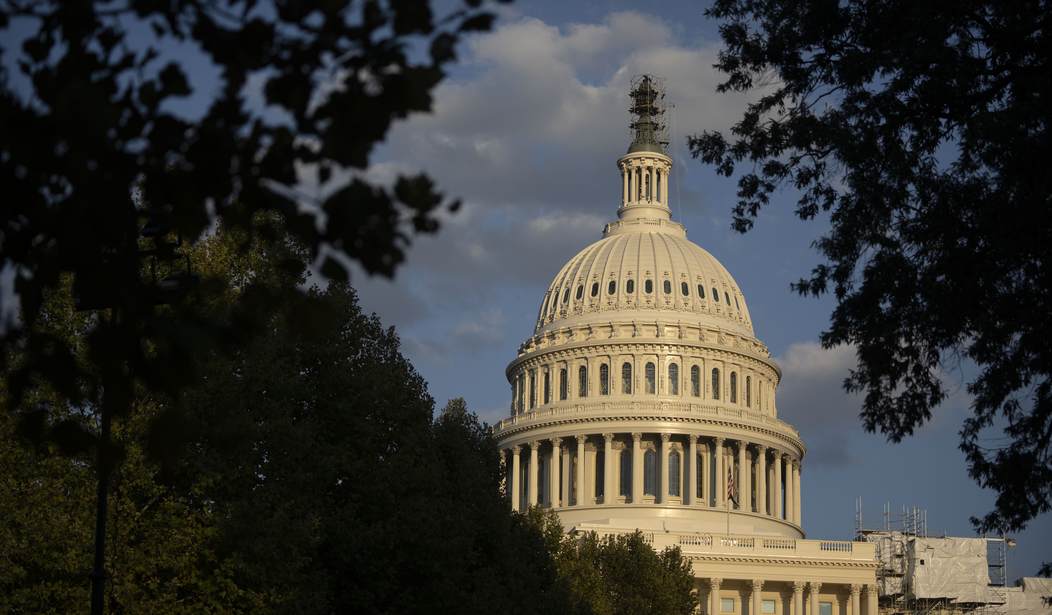Two key federal reports and one important legislative proposal were recently released. The Congressional Budget Office’s (CBO) latest long-range fiscal outlook was issued on February 7. The Fiscal 2023 annual financial report for the consolidated federal government was issued on February 16. Finally, the bipartisan Defending Borders, Defending Democracy Act (DBDDA) was also released on February 16.
The CBO report continued to project huge annual deficits and mounting debt burdens for the next thirty years. They re-stated that the federal government is on an unsustainable fiscal path, and they project that debt/GDP will grow to 172% by 2054. However, the truth is, a more realistic outlook is worse. For example, the CBO assumes that all the 2017 so-called Trump tax cuts will expire at the end of 2025. CBO also assumes that the spending constraints contained in the Fiscal Responsibility Act of 2023 will continue past their statutory expiration date.
The Treasury Department issued the federal government’s consolidated financial report for the year ending September 30, 2023 (Fiscal 2023). Those financial statements showed that the accrual-based net cost was $3.4 trillion which is double the cash-based deficit of $1.7 trillion! Federal assets grew by about $450 billion, and the largest federal asset continued to be the $1.7 trillion in student loans. Liabilities rose $3.9 trillion to $42.9 trillion and unfunded social insurance obligations rose by $2.5 trillion to $78.4 trillion. Total reported liabilities and unfunded social insurance obligations increased $6.4 trillion to about $121.3 trillion, or about $357,000 for every man, woman, and child in the United States.
While significant progress has been made in federal financial reporting during the 21st century, more needs to be done. For example, the $6.9 trillion in federal debt obligations held by the Social Security, Medicare, and other federal “trust funds” are not shown as a liability even though they are part of the debt ceiling limit and are guaranteed by the 14th Amendment to the Constitution. As a result, the government continues to understate its liabilities and interest costs. The Trust Funds should be accounted for as separate legal entries rather than sub-accounts of the general ledger. In addition, the federal Statement of Net Assets should have a double “bottom line.” Specifically, in addition to the current version, a second bottom line would include the $78.4 trillion in unfunded obligations associated with Social Security and Medicare. Finally, the Statement of Net Assets should only include physical assets that the federal government has the possibility and ability to sell. Such is not the case with military weapons systems and munitions. At the same time, additional information regarding the amount and condition of any such assets should be disclosed in the footnotes, including excess property.
Recommended
Both the Treasury Department and the Government Accountability Office (GAO) reinforced that the federal government is on an unsustainable fiscal path in the annual financial report. However, even though the situation is much worse today than when I left the U.S. Comptroller General position in 2008, their highlighting of that fact in their annual reports is less, rather than more, prominent.
Finally, Rep. Brian Fitzpatrick (R-PA) and Rep. Josh Gottheimer (D-NJ), co-chairs of the House Problem Solvers Caucus, and others introduced the DBDDA as a good faith effort to break the gridlock on border and international security funding. Their bill focuses on securing the border and providing military aid to Ukraine, Israel, and Taiwan.
Like many other legislative proposals, it is not paid for despite our huge deficit and mounting debt since it is deemed to be “emergency” funding. The truth is, while the state of our Southwest border is a crisis and an emergency for the U.S., the funding for Ukraine and Israel is a crisis for them and not an emergency for us. In addition, the Taiwan funding is not an emergency but does represent an attempt to help deter Chinese aggression which we failed to do in connection with Ukraine. For the record, we do not have a defense treaty with any of these partners.
Despite the above, DBDDA is meritorious and deserves serious consideration, but it should be amended to include the bipartisan Fiscal Commission Act. The related bipartisan commission will engage the American people with the facts, the truth, and the tough choices and solicit their input. It will also serve as a means to set the table for an up or down vote in Congress on reforms to restore fiscal sanity and sustainability. Everything needs to be “on the table” but not all things are equal. We need to quit kicking the can of tough choices down the road so we can defuse our ticking debt bomb.
It is time for more truth, transparency, and transformation in connection with these and other federal reform matters. The U.S. is facing significant domestic and international challenges that need to be addressed sooner versus later. By doing so, we can create a better future for Americans.
Hon. David M. Walker is the Former U.S. Comptroller General and Director of the Federal Fiscal Sustainability Foundation

























Join the conversation as a VIP Member